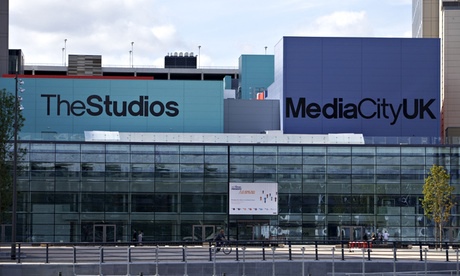
The UK's creative industries need to embrace regional and ethnic diversity if they are to play an improved role in helping the economy, warns a report from a leading thinktank.
The Institute for Public Policy Research has published a wide-ranging report into the creative industries ahead of this week's Oxford Media Convention, in which it calls on the government and private sector to diversity investment in the creative industries away from London.
It has also called for the UK's existing broadcasters, including the BBC, to provide "venture capital for creativity" in the wider production sector through their investment and commissioning policies.
The report, March of the Modern Makers: An Industrial Strategy for the Creative Industries, argues that a lack of regional and ethnic diversity is preventing the creative industries – which span advertising , publishing, music, visual arts, film and TV – from reaching their full potential.
The report highlights the over-concentration of the creative sector in London, and low recruitment of people from non-white and less well-off backgrounds, as threats to the future competitiveness of the sector.
It points to statistics, such as the proportion of non-white people working in the creative sector being about half of that of the rest of the economy and actually declining during the 2009-12 downturn.
Creative industries such as advertising and TV are overwhelmingly focused in London, while the report points out that the BBC spent 54.2% of its programming budget in London in 2012 and has only committed to reducing this to 50% by 2016.
The IPPR associate director, Will Straw, said: "From Americans watching Downtown Abbey, Asians listening to Adele and Africans tuning into the Premier League, British content is global. But competition from other countries is increasingly intense with countries that have more effective industrial policies quick to steal a march on us. In recent years the UK has slipped from third to sixth in global retail sales of computer games, with countries like Canada supporting its gaming sector through an aggressive policy of tax incentives.
"Creative clusters are emerging in every region of the country and could hold the key to rebalancing the UK economy. These creative centres are helping create a more dynamic and competitive economy overall but they have not been given as mush support as London. The chancellor should address this in the budget and support the UK's 'march of the modern makers'."
Despite arguing that the creative industries are a "closed shop", the report points out that overall the creative industries are showing signs that they are winning the "global race" for creative content.
The report points out that exports from the creative sector grew from 11.5% of the overall service sector in 2009 to 16.1% in 2011 and that growth in creative industries was nearly three times the average since the 2008 financial crisis.
The IPPR has now called for a comprehensive action plan for the UK creative industries to address these challenges.
Included in the action plan are calls for employer-led training programmes rolled out across the creative sector and supported by funding from government; government institutions to focus more of their time and resources on support of creative clusters outside London; and tax relief designed to support talent development, innovation and content development.
• To contact the MediaGuardian news desk email media@theguardian.com or phone 020 3353 3857. For all other inquiries please call the main Guardian switchboard on 020 3353 2000. If you are writing a comment for publication, please mark clearly "for publication".
• To get the latest media news to your desktop or mobile, follow MediaGuardian on Twitter and Facebook.

